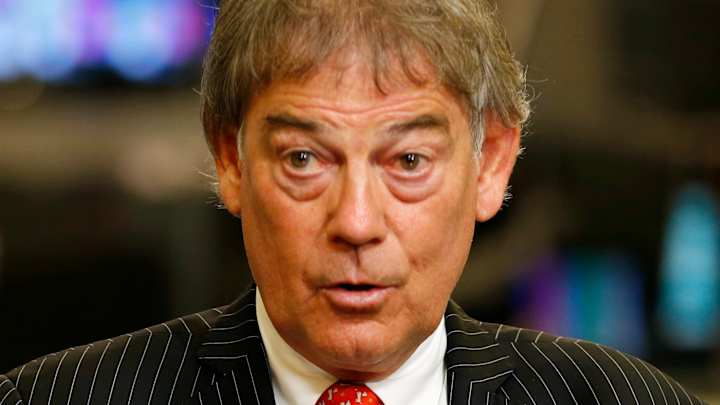WADA director general disappointed by no Armstrong apology

NEW YORK (AP) The director general of the World Anti-Doping Agency is disappointed Lance Armstrong has not apologized for costly and time-consuming lawsuits before the former cycling champion admitted using performance-enhancing drugs.
In an interview at The Associated Press on Tuesday, David Howman said NFL and NHL players need to change their attitude toward drug testing, the NCAA and amateur sports require upgraded testing, and professional soccer clubs should coordinate efforts with FIFA and continental confederations. He also said WADA policies would not prohibit mixed martial arts star Anderson Silva from competing in the Rio Olympics in taekwondo.
Armstrong was given a lifetime ban from his sport in 2012 and admitted the following year his denials had been lies. He was stripped of his seven Tour de France titles.
''He was able to beat the system in ways and means where others were complicit and others understood what he was trying to do. And I'm not just talking about his team. There was a healthy disrespect for the rules. I don't think that will happen again,'' Howman said. ''We spent a lot of time, a lot of money. We fended off a lot of legal action (that was) all for nothing. And we're not going to be compensated. We haven't even been apologized to, and that's regrettable.''
Armstrong did not respond to a request for comment.
Howman was in New York to announce a collaboration between WADA and the Partnership for Clean Competition that includes $6 million in research funds, of which $1.5 million will be matched by the International Olympic Committee.
In discussing professional sports in the U.S., he criticized the NFL Players Association for not agreeing to more stringent anti-doping policies.
''(The NFL has) a bit of an issue with their collective bargaining agreement, which has not lent itself to the same, let's say, progressive anti-doping program that the Major League Baseball people have, and similarly at the NHL,'' he said. ''I think there needs to be an attitudinal shift from the players. They should be making sure that they're delivering clean sport. They should be making sure that they're not protecting the bad guys, the one or two who may try to cheat or actually cheat.''
NFLPA spokesman George Atallah responded to the AP: ''We know that WADA has to demonize athletes and unions to stay relevant. Our collectively bargained drug policies are strong and fair.''
Donald Fehr, the executive director of the NHL Players' Association, did not respond to a request for comment.
Howman said five positive tests in MLB in the last month are ''worrisome'' to that sport.
''I think they're conducting an inquiry to see why they have occurred, whether there was some link with any supplement or any other substance that might be spiked intentionally with some banned substance,'' he said.
Some of the other doping issues Howman addressed:
- The NCAA conducts urine tests during championship events and tests during infrequent visits to campus during the rest of the year. Individual schools have differing programs.
''I don't confine my comments to the NCAA within the United States. I would say internationally that's an area where there needs to be much more done because there are young athletes who are tempted to cheat in order to try to get the professional contracts,'' Howman said. ''I don't think you can even say that there's such a thing as an amateur athlete these days except within the college system in this country.''
- WADA policies would not prohibit Silva from competing in Rio in taekwondo, Howman said, because his failed drug tests did not come under the WADA code. Silva tested positive for steroids in January before a UFC fight. He has insisted he is clean.
Silva has been temporarily suspended by UFC and could be further sanctioned by the Nevada Athletic Commission, a ban the UFC would respect. He and Brazilian taekwondo officials are planning a news conference Wednesday about his hopes of participating in his home country's Olympics next year, which the national federation has called a ''wonderful possibility.''
Howman said the decision on whether Silva could take part in the 2016 Games would need to come from taekwondo's international governing body.
''We're going to have to really say it's at their discretion,'' he said. ''I'm sure they'll exercise it with some care.''
Howman plans to meet with executives of Ultimate Fighting in coming days. As for boxing, he called it ''a world unto its own'' that the U.S. Anti-Doping Agency is attempting to deal with.
''It's broken into several states where licenses are given and there are so many events, each of which has its own rules, that unless they coordinate and come together as a group, it's very difficult for a program to be run,'' he said.
- Positive tests in soccer have been rare, in part Howman said because not enough testing is conducted.
''They will say they don't fail tests because they're all doping free,'' he said, saying international governing bodies must coordinate with national federations and leagues. ''They need to be dovetailed, so there is a consistency and a profile built up of players that is across all these particular programs.''
- He anticipates golf will be improving for the 2016 Olympics because ''the PGA Tour is developing a program that will be Olympic standard to ensure that the golfers who are on the tour can compete in Rio.''
- A WADA team was in Nairobi last week as Kenya works to establish its new anti-doping agency to combat a spate of positive tests.
''I'm hopeful in a few months' time they will have an active program,'' Howman said.
---
AP Sports Writer Jim Vertuno contributed to this report.
